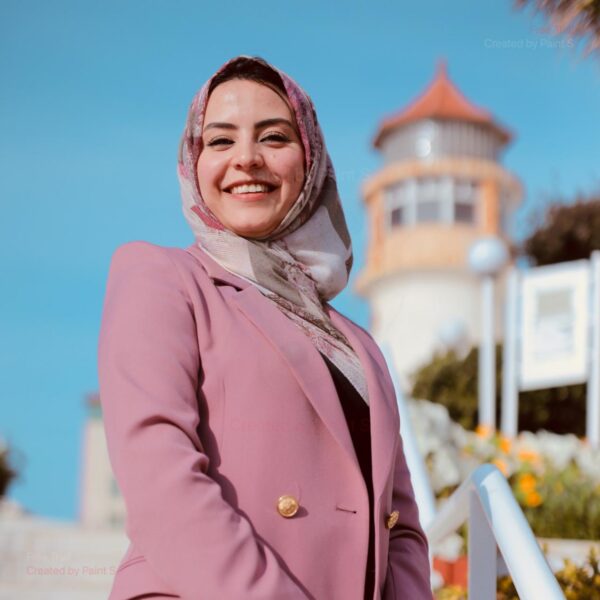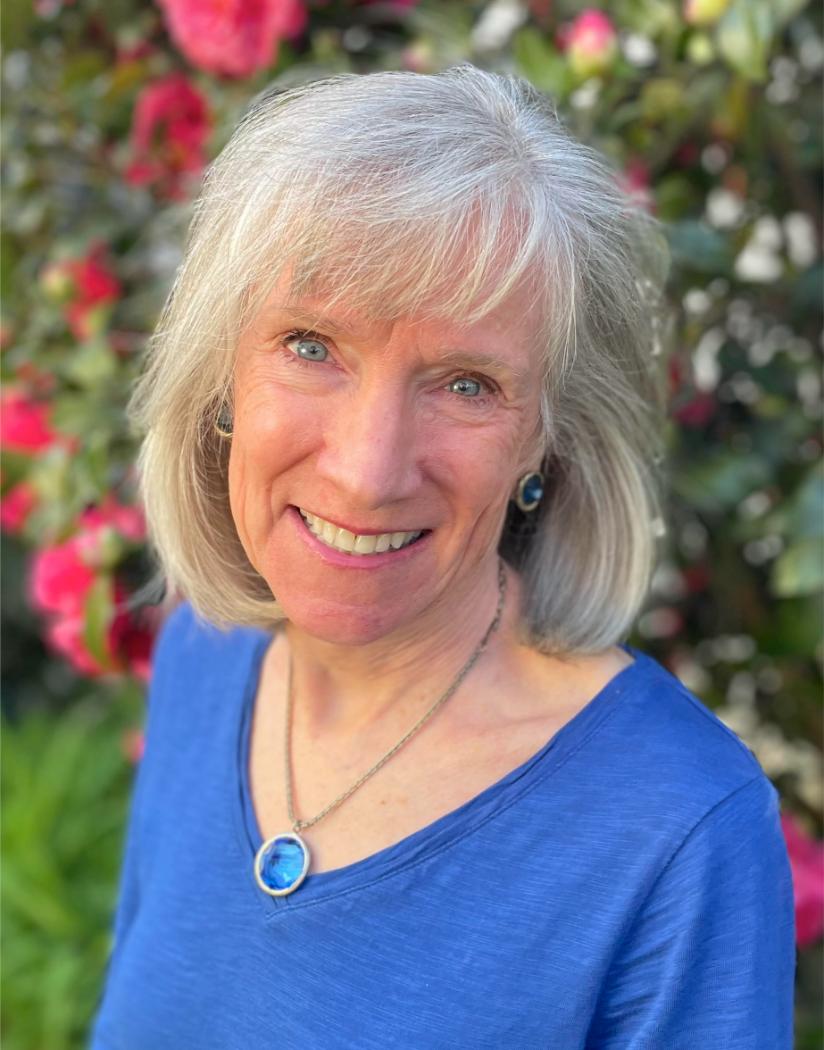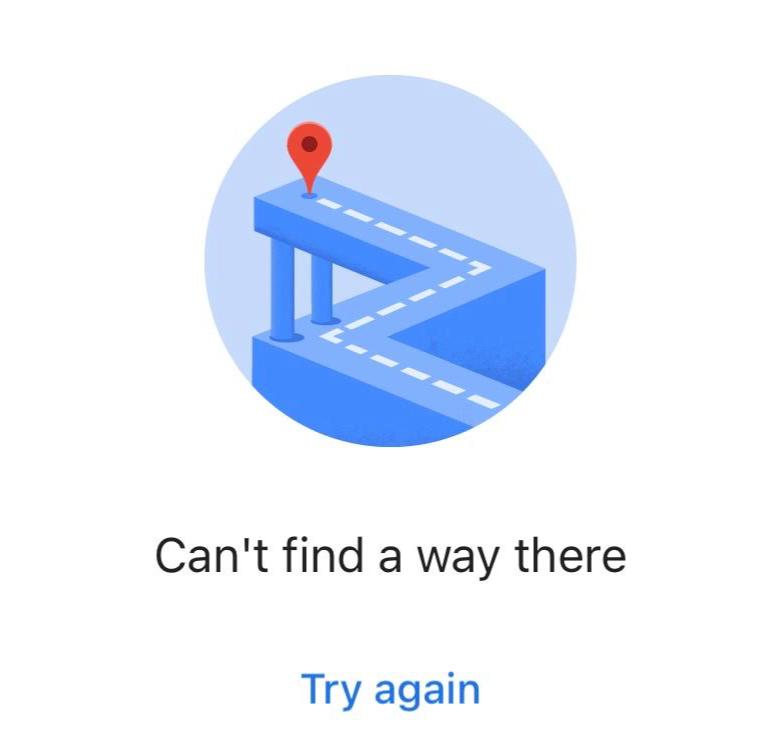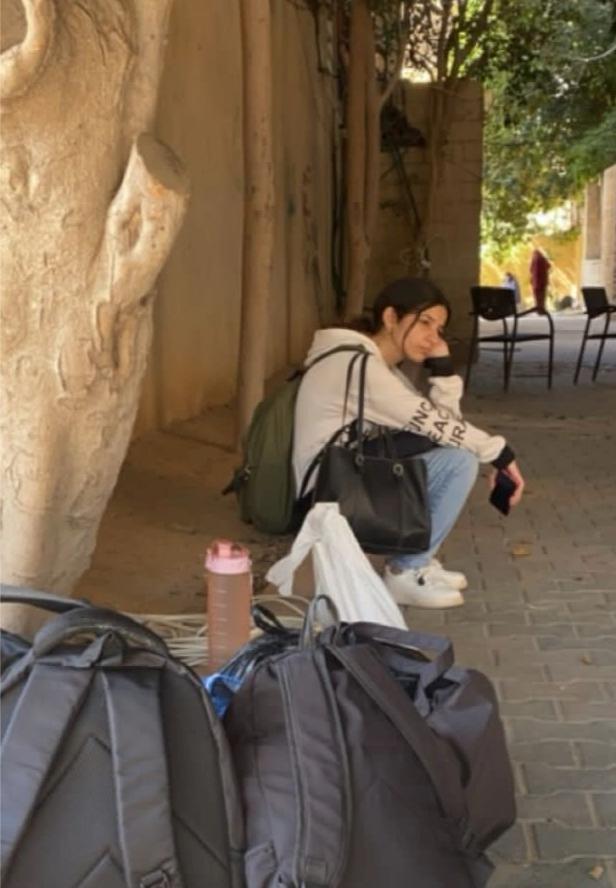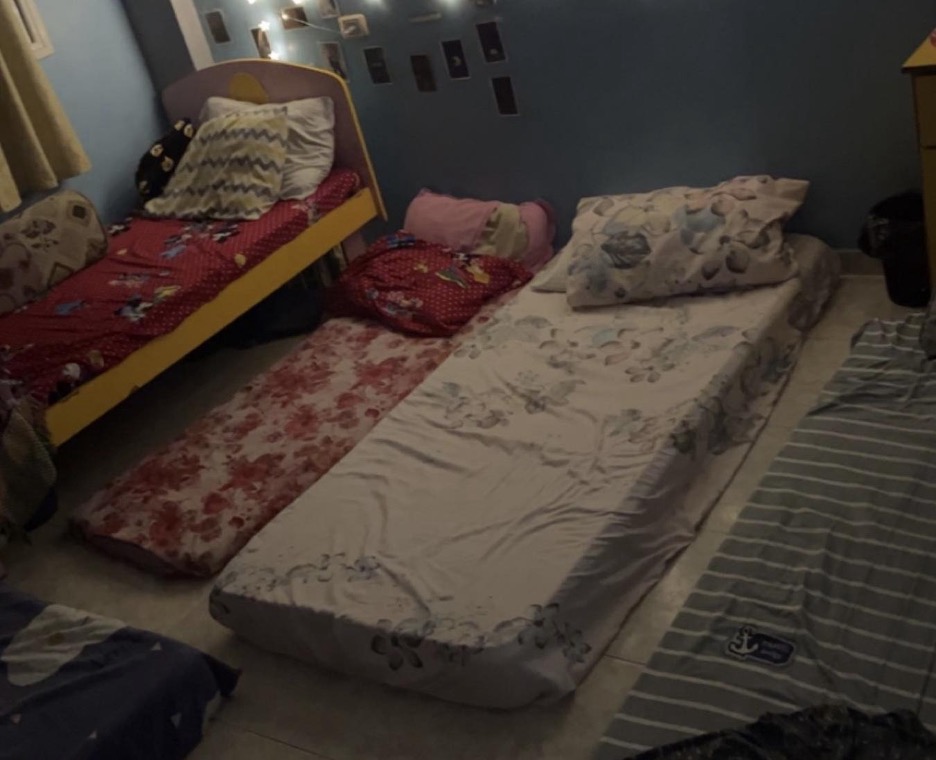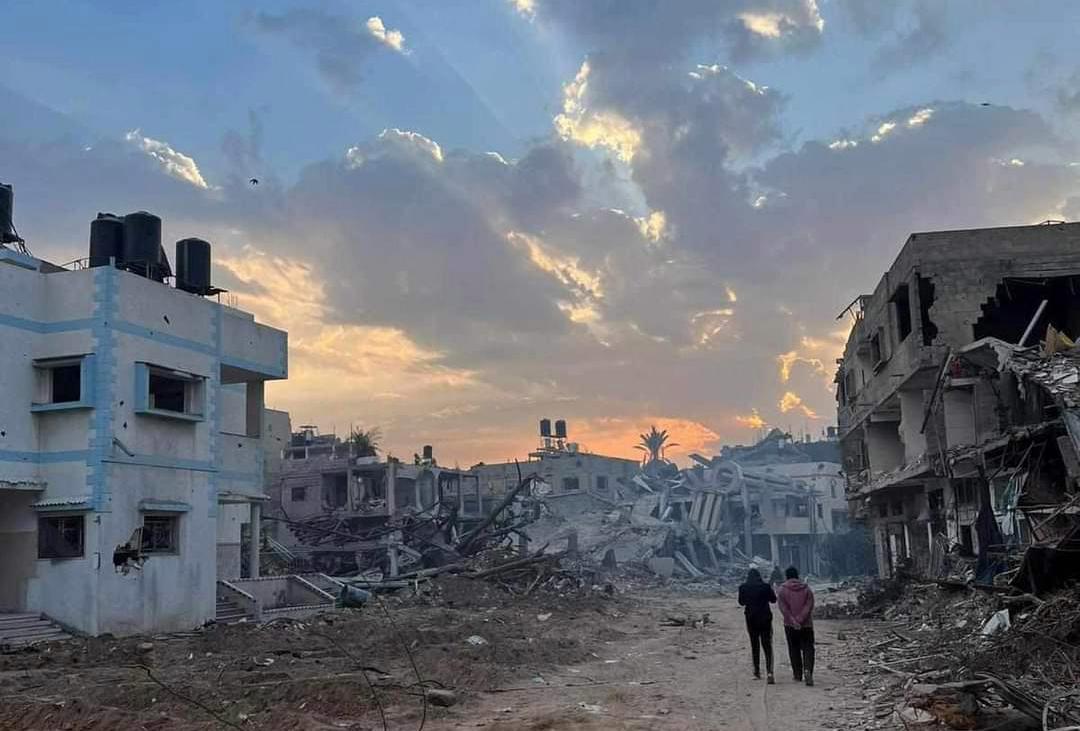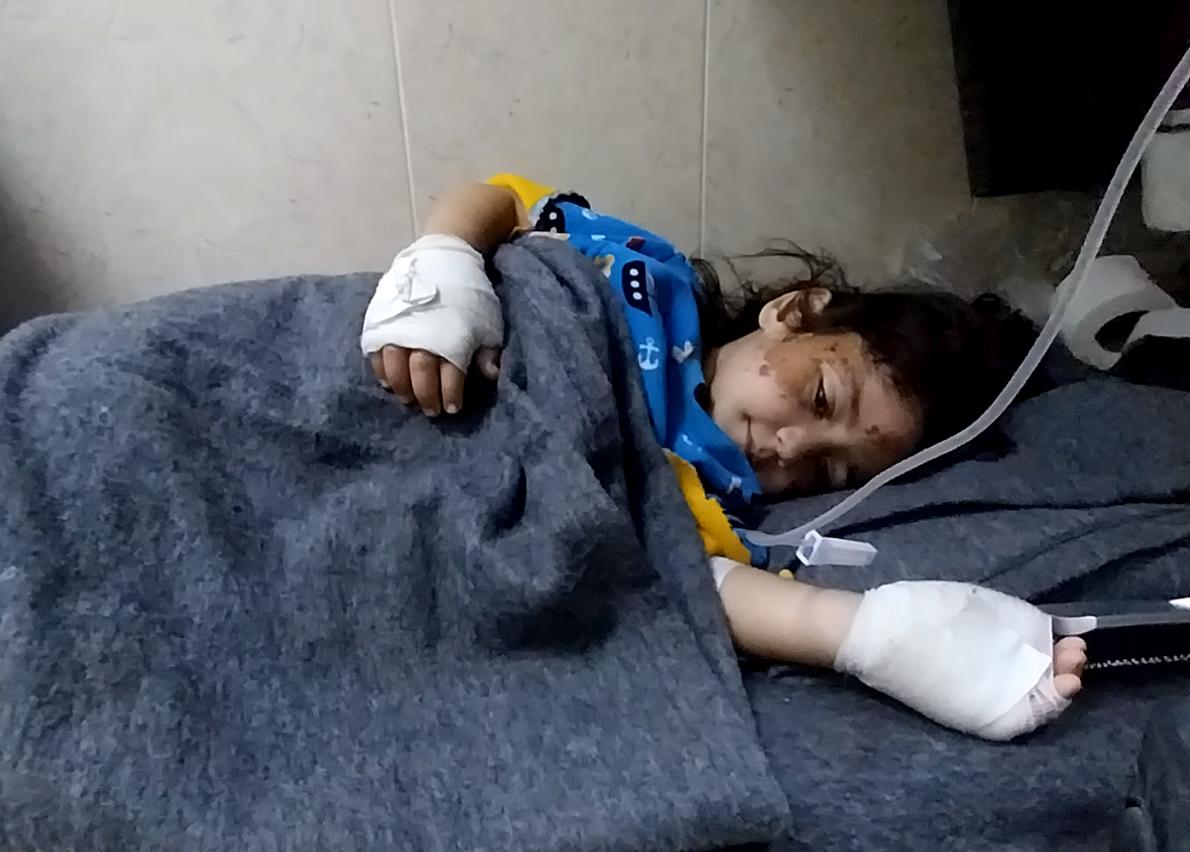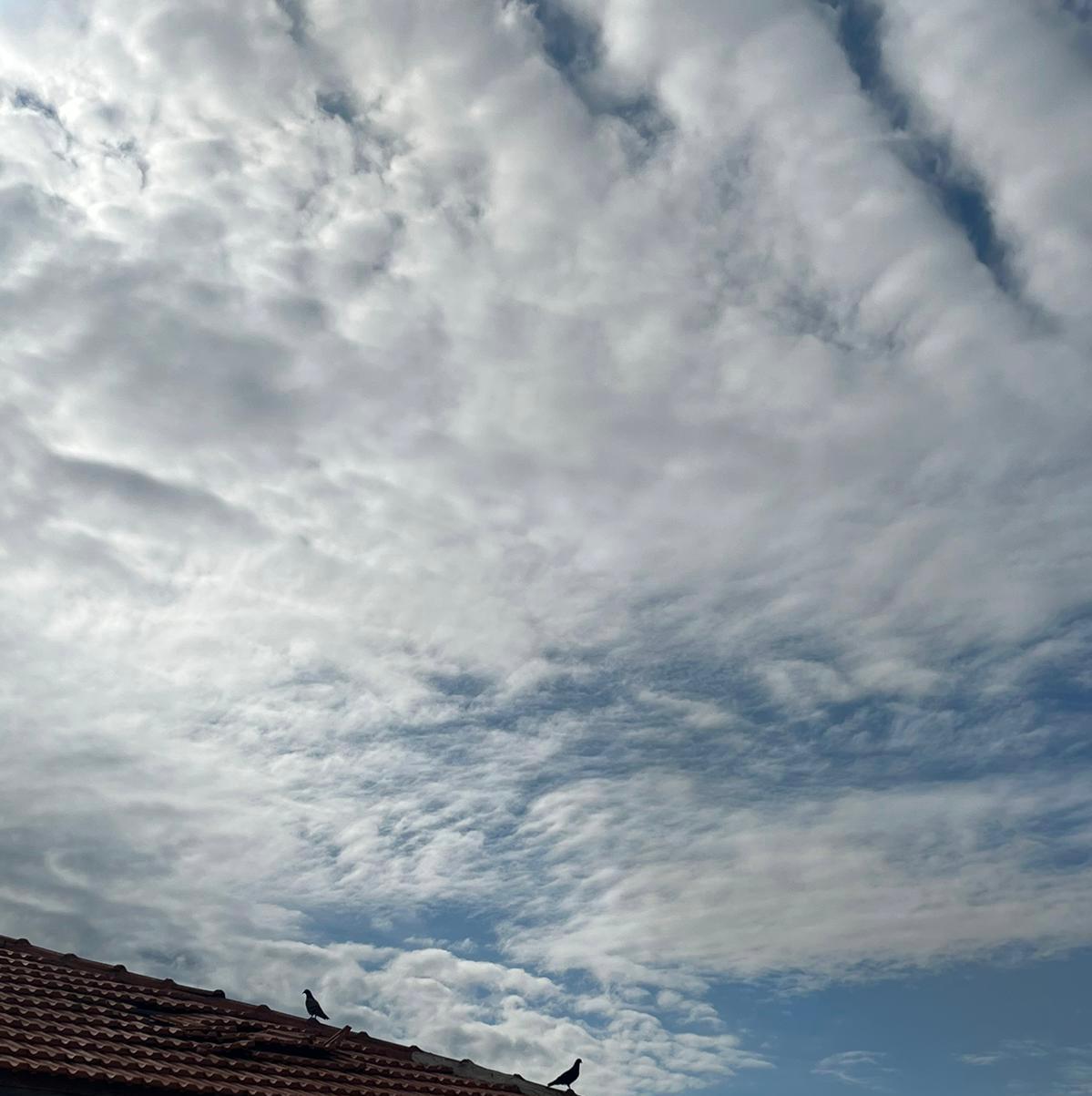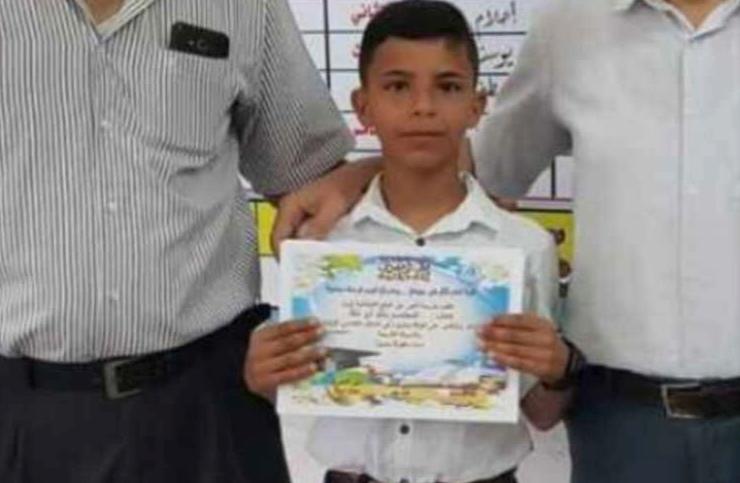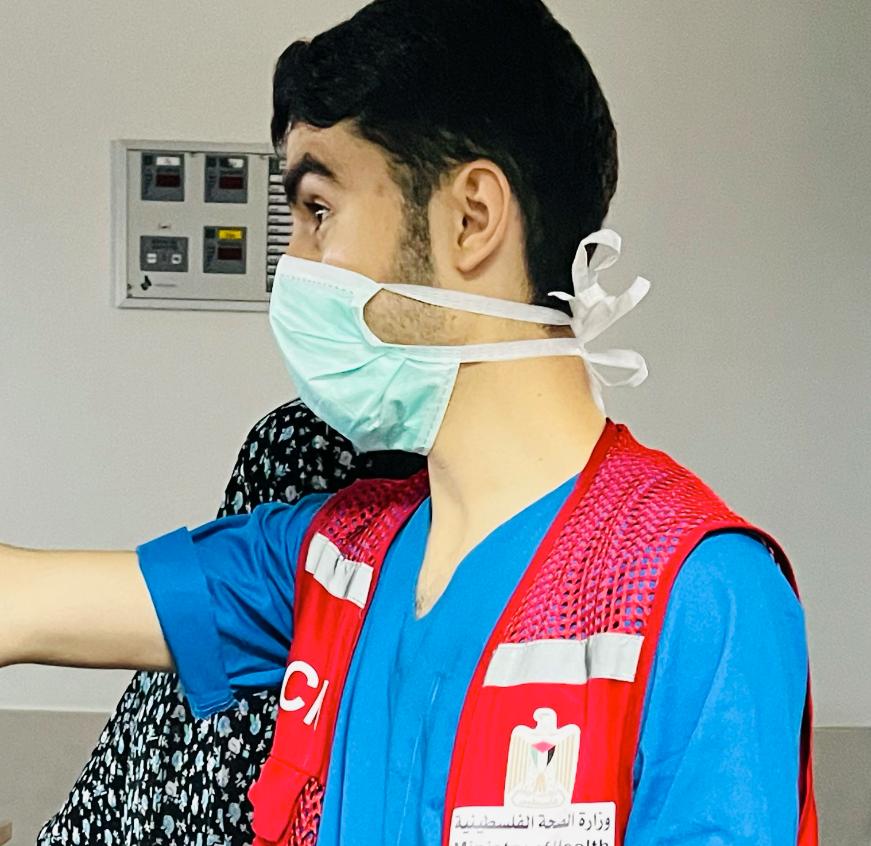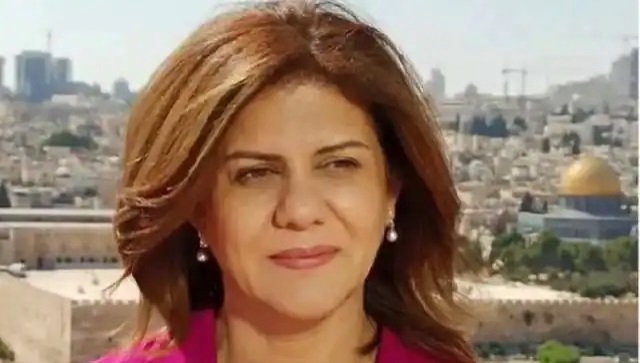
When I was a child, one of our neighbors in Gaza was a TV journalist, and she would let me wear her press vest. In a too-large navy-blue vest, I would hold the pestle, that my mother used for crushing spices in a mortar, as if it were a microphone and pretend to read the news from an Al-Jazeera news ticker.
I would always end the “report” by identifying myself as the Palestinian press icon: “Shireen Abu Akleh, Al Jazeera, the Occupied Jerusalem.”
And when I used to hear Shireen on TV, I would jump from my bed to finish her usual signoff: “We will keep you posted on any developments.”
In the days when the Israeli military was still in the Gaza Strip, my grandma used to live in Khan Younis – 15 miles away from Gaza City where my family lives. Because of the checkpoints set up by the Israeli military, the trip, which now takes 30 minutes, could take 15 to 20 hours. As a five-year-old girl, I would face the uniformed Israeli who were peering out of their tiny room next to the checkpoint and report to my audience, imitating Shireen, on how my family suffered just to visit my grandma. My family used to eat our breakfast, lunch, and sometimes dinner at the checkpoint. Whenever mum went to ask soldiers to let us pass, they would push her and bark at her to go back and never approach them again.
My mum once had to leave me with my grandma for a while for some family issues. I was six years old, and she was supposed to pick me up a month later, but this extended for a year, as she was not allowed to cross the checkpoints to Khan Younus to retrieve me. Finally, she was allowed and I returned home with her through the checkpoint. And once again I pointed to the same soldiers and told my story, like Shireen would have.
In 2020, I landed a job as a newscaster. I continued viewing Shireen’s videos and imitating her delivery. I was happy when I caught her on the news happy and I agonized when I saw her saddened by what she had to report.
A nightmare that was real
Shireen, to Palestinians, was a press icon. She lived in Jerusalem but traveled all over Palestine, conveying the Palestinian narrative and standing for human rights. In more than 25 years of broadcasting, Shireen became a household name and voice, familiar to nearly everyone.
On May 11, 2022, the day Shireen was killed, I opened my eyes to my alarm, informing me it was time to get up and dress for work. My bones had another opinion though, so I decided to stay in bed a little longer and sneak onto my Facebook page. There I came across a post by Tamer Almisshal, another Al-Jazeera journalist, saying Shireen was killed.
I blinked; I felt my heart jump from its place with fear. I closed my eyes, trying to stop the flow of the scenes of Shireen reporting the news in my head. I thought this was just a nightmare, a strange one.
I opened my eyes again, but nothing had changed. The news was real.
It was a long day of continuous crying. I still remember that I couldn’t keep my concentration and had to rewrite a work email five times. At 12:30 a.m. the next day, I had to call a friend of mine to get those negative emotions off my chest.
Three days of continuous crying
I hadn’t followed the Western news media much for quite a long time because I had become so disgusted by the explicit double standards and lack of integrity in its reporting on the Middle East. But I followed all the news minute by minute during Shireen’s funeral: three days of continuous crying and unresolved agony.
Shireen’s death connected Palestinians from different religions, sects, and political affiliations. In Palestine, Muslims and Christians, old and young, imams and priests, walked side by side to say goodbye. From Jenin Camp to Jerusalem to the wounded Gaza, Shireen’s body was carried in procession as Palestinians united in grief. Mourning her death, the national, Islamic, and Christian officials in occupied Jerusalem announced a comprehensive strike for the day of her burial, May 13.
That day was the toughest. My mum tried to soothe her pain by involving herself in multiple household chores. She came into the living room with a big laundry basket full of clothes and started folding them while looking at Al-Jazeera on the TV. She sobbed as if Shireen were her closest friend or a sister.
I asked my mum to turn off the TV. It was too much pain to watch, unable to do anything. She refused, as I expected. I decided then to write in my diary, which I had been ignoring for weeks. I wrote about how we Palestinians had tried hard to accept that Shireen had been killed and now we had to watch all these brutal scenes as her mourners were attacked. Writing was quite of a release, but watching my mum crying did not help me move on.
For me, the worst part was seeing Shireen’s coffin almost falling to the ground after the Israeli Occupation Forces attacked her pallbearers at her funeral procession. It was emotionally draining and provoking that the military tried to block people even from saying goodbye properly to their beloved journalist.ِ
It might be hard for people in the West to understand Palestinians’ emotions, but it is the unity of Palestinians as one nation that resulted in this national reaction. Shireen was a pillar in every house.
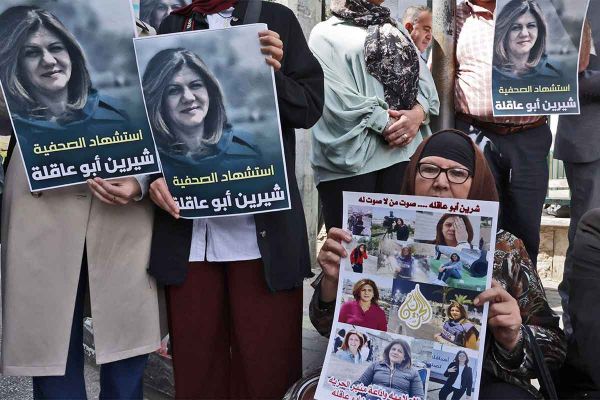
Despairing for justice
Six weeks after Shireen’s death, Bellingcat Investigation Team/B’Tselem and several Western media outlets including The Associated Press, CNN, The Washington Post, and The New York Times presented convincing evidence that the shots that killed her and wounded a colleague were fired by the Israeli Occupation Forces and were targeted, not random. Yet the Israeli government continues to say it is “investigating.” Meanwhile, the U.S. government has done little to press for real answers to what happened to one of its citizens, unlike the U.S. investigations that followed the killing of American journalist Daniel Pearl in Pakistan in 2002 or U.S. resident and journalist Jamal Khashoggi in a Saudi Arabian embassy in Turkey in 2018. With the double standards of the Western media and the deliberate ignorance of the international community toward the Palestinian cause, Palestinians are despairing of there ever being justice for Shireen.
A couple of days ago, I was at a dinner with five colleagues when the topic popped up. My friend Areej asked about the case that Al-Jazeera had filed against the occupation forces. Another friend, Noor, replied, “Do you still have hope? Do you have faith in international law after being for 76 years under siege?” Another friend listened with gloomy facial features, and then replied “Yeah! This is life: oppressed and oppressor.”
I then shared with them something I heard recently: “In every power struggle in the world there is a wrong oppressor and a righteous oppressed, except for the Palestinian cause. There, the world unjustly perceives a righteous oppressor and a wrong oppressed.”
The grief has not subsided
A couple of days ago, I went to visit my grandma and grandpa in their old little house in Gaza City. In the middle of my chat with my grandma, out of nowhere she paused and said, “Who believes that Shireen is dead now!” She released a sigh from the bottom of her heart that everyone in the room could hear. We all went silent until my six-year-old cousin, Nada, explained to us, as if it needed explaining: “The one whose coffin was attacked.” Then all the scenes repeated themselves, but this time in our heads.
On June 19, 2022, Palestinians in Ramallah attended a memorial event to mark 40 days after the killing of Shireen Abu Akleh. A book of condolences was set out at the memorial event in the Ramallah Cultural Palace for attendees to write messages.

Shireen the inspiration
The day Shireen was killed, a father of twins from the Gaza Strip, Mohammed Thabet, named his first daughter Shireen, after Shireen of course, and the second Jenin, for the Palestinian refugee camp where the journalist was killed. It was a message to the world that Palestinians will continue defending their cause and fighting for their freedom.
To encourage more female students to pursue their studies in journalism, in May 2022 Birzeit University launched the Shireen Abu Akleh Awards in Media, dedicated to Palestinian journalists covering the Israeli occupation violations in Palestine.
- Shireen Abu Akleh Award for Outstanding Achievements in Media, dedicated to Palestinian journalists and reporters covering life under the Israeli occupation.
- Shireen Abu Akleh Endowed Scholarship, to be awarded annually to high-achieving female journalism students at Birzeit University, providing them the opportunity to complete their education and produce stories that highlight Palestinian culture, history, and traditions.
- Shireen Abu Akleh Academic Chair in Journalism established in Shireen’s memory to attract an excellent faculty member who will work to advance research and teaching at Birzeit University.
Will time heal this wound?
They say time heals; I do not believe it does. Time usually brings more drama that makes us move on with no other option, especially if you are a Palestinian. Shireen was killed. The wound is still here. The wound will heal only if the international community brings her case to the International Criminal Court and it results in real change for Palestine.

